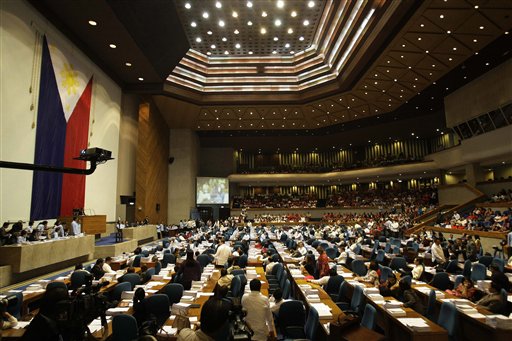
The House of Representatives. INQUIRER FILE
MANILA, Philippines — Some leaders of the House of Representatives have urged concerned agencies to conduct an investigation into the viral deepfake video of President Ferdinand Marcos Jr. supposedly commanding the Armed Forces of the Philippines to act against a foreign country.
In a statement on Sunday, Senior Deputy Speaker and Pampanga 3rd District Rep. Aurelio “Dong” Gonzales Jr. said the Department of Information and Communications Technology and its Cybercrime Investigation and Coordinating Center should conduct an investigation.
“This matter involves national security and the malicious dissemination of fabricated information,” Gonzales said.
“We should not allow this to happen again. We should not tolerate criminally minded persons to wreak havoc on our national security and to give our people fake information,” he added.
Gonzales also said the people behind the viral video should be tracked and prosecuted.
Deputy Speaker and Quezon Rep. David “Jayjay” Suarez echoed Gonzales’ call, saying that agencies investigating the viral deepfake video should send their “periodic report” to the lower chamber, indicating their progress.
He added the AFP should not “listen to impostors and fabricators” or the Marcos purported directive.
“It should not be difficult for them to identify the origin of the deepfake and those behind it. I suspect this bogus material originated from somewhere in the south of the country,” he said.
“I trust that they will heed instructions issued only through official lines of communication and from the chain of command. I believe in the professionalism and patriotism of our soldiers,” the lawmaker stressed.
Last April 27, the Philippine National Police (PNP) said that it had already identified the “possible source” of the video, which came after its Anti-Cybercrime Group (ACG) launched an investigation to determine the identity of the people behind the case.
PNP said ACG had already coordinated with the Department of Information and Communications Technology on the matter.
It likewise said that the culprits may face charges for violating Article 154 or the Unlawful Use of Means of Publication and Unlawful Utterances of the Revised Penal Code in connection with Section 6 of Republic Act 10175 or the Cybercrime Prevention Act of 2012.